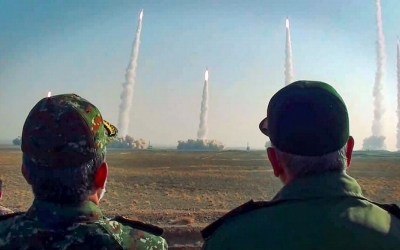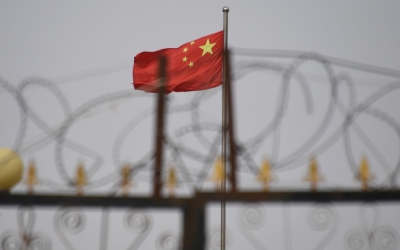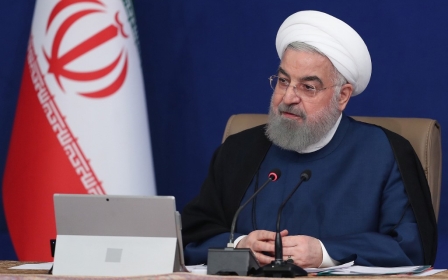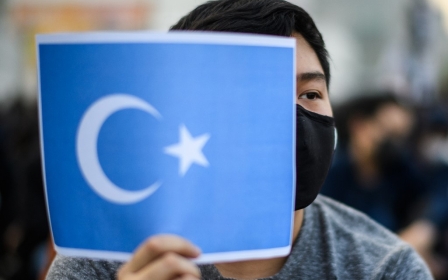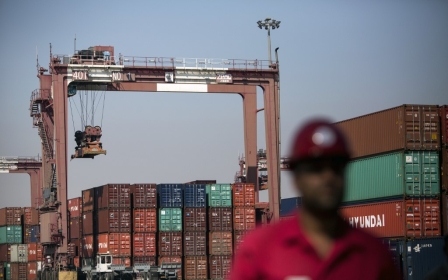Iran and China sanction outgoing Trump administration officials
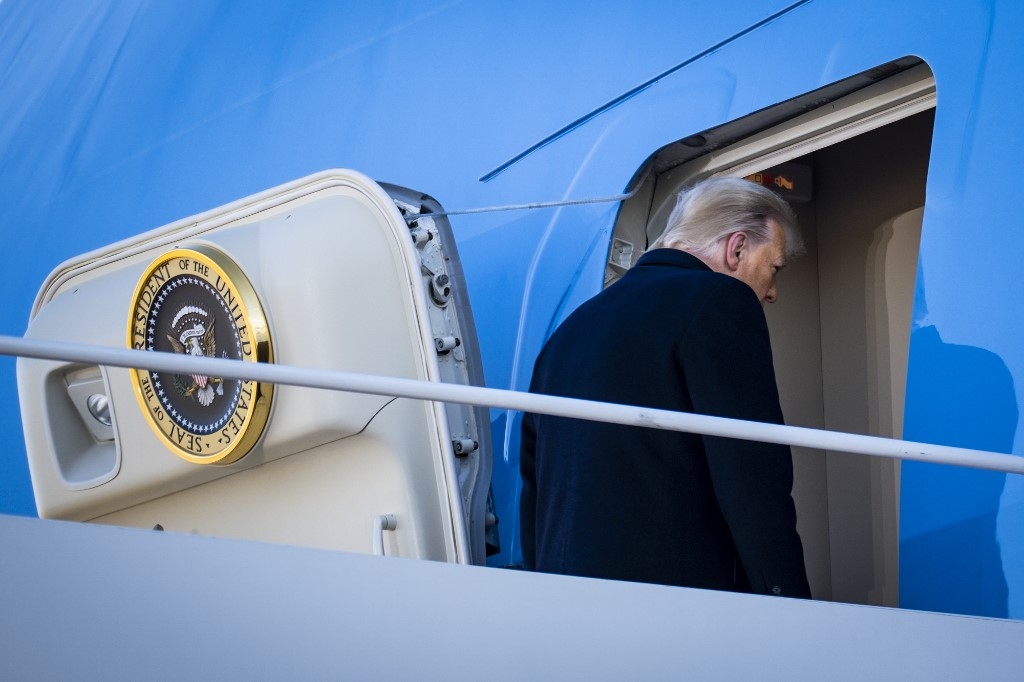
Iran and China imposed sanctions against former US President Donald Trump and dozens of officials from his administration, hours before they left office.
Tehran slapped largely symbolic sanctions against top aides and advisers who took part in the Trump administration's "maximum pressure" campaign, as well as the former president himself, Iran's Foreign Ministry announced on Tuesday.
The sanctions target former Secretary of State Mike Pompeo; former Treasury Secretary Steven Mnuchin; former Pentagon chief Mark Esper; ex-CIA director Gina Haspel; Trump's former national security adviser John Bolton; as well as former US envoys to Iran, Brian Hook and Elliott Abrams, among several others.
Issued under a 2017 law titled "Combating Human Rights Violations, American Adventurism and Terrorist Actions in the Region", the ministry said the officials were sanctioned "for their role and involvement in Washington’s acts of terror against Iran and Iranian nationals and violation of their human rights".
Examples given by the ministry include the administration's role in the assassination of top Iranian General Qassem Soleimani last year, training and arming anti-Iran forces in the region, and "offering all-out support to the Israeli regime's oppression against the Palestinian nation".
The ministry also noted the heavy sanctions imposed on Iran that it said played a major role in "preventing Iranians from gaining access to food and medicines as well as medical services and equipment", as well the US's support for the Saudi coalition's "crimes against humanity and war crimes committed in Yemen".
"Accordingly, the Islamic Republic of Iran reserves the right to adopt the necessary measures to counter international acts of violation by the US in all domains," Foreign Ministry spokesman Saeed Khatibzadeh said.
China: 'Restricted from doing business'
China also levied sanctions on former officials who worked in the Trump administration, blacklisting a total of 28 individuals.
Those sanctioned include former secretary of state Mike Pompeo; former national security advisers Robert O'Brien and John Bolton; ex-deputy adviser Matthew Pottinger; former secretary of health and human services Alex Azar; former US ambassador to the UN Kelly Craft, and former Trump adviser Stephen Bannon, among others.
It was not immediately clear if Trump himself was included in Beijing's list of sanctioned individuals.
In a statement on Wednesday, the Chinese Ministry of Foreign Affairs said the sanctions had been levied against those who planned, promoted and executed "a series of crazy moves which have gravely interfered in China's internal affairs, undermined China's interests, offended the Chinese people, and seriously disrupted China-US relations".
"These individuals and their immediate family members are prohibited from entering the mainland, Hong Kong and Macao of China," the ministry said.
"They and companies and institutions associated with them are also restricted from doing business with China."
Given China's influence in international business and trade, the Chinese sanctions come with more of a bite than those imposed by Iran, which has been largely isolated since the Trump administration pulled out of the Iran nuclear deal in 2018.
Both countries have been targeted by the Trump administration during the past several years and have incurred a series of US sanctions that continued up until the administration's final days.
'Good riddance'
While Trump was against Iran from the beginning of his term, his relationship with China and President Xi Jinping began as friendly before becoming aggressive.
Punitive measures designed to punish China for trade imbalances, alleged technology theft, and Covid-19 - which Trump took to calling "the China virus" - further damaged the US-China relationship.
On Tuesday, Pompeo struck a final blow at the administration's former ally, officially stating for the first time that Beijing was committing "ongoing" genocide against its Uighur Muslim minority.
China's state news agency Xinhua News posted a celebratory tweet on Wednesday that read "Good Riddance, Donald Trump!" just before US President Joe Biden took the oath to office.
While the Biden administration is set to make moves to mend the US relationship with Iran, seeking to re-join the Obama-era nuclear deal, the new president has been an ardent critic of China.
Biden, who's team termed the persecution of Uighurs a genocide in August, has vowed to speak out against China's human rights abuses.
Middle East Eye propose une couverture et une analyse indépendantes et incomparables du Moyen-Orient, de l’Afrique du Nord et d’autres régions du monde. Pour en savoir plus sur la reprise de ce contenu et les frais qui s’appliquent, veuillez remplir ce formulaire [en anglais]. Pour en savoir plus sur MEE, cliquez ici [en anglais].


